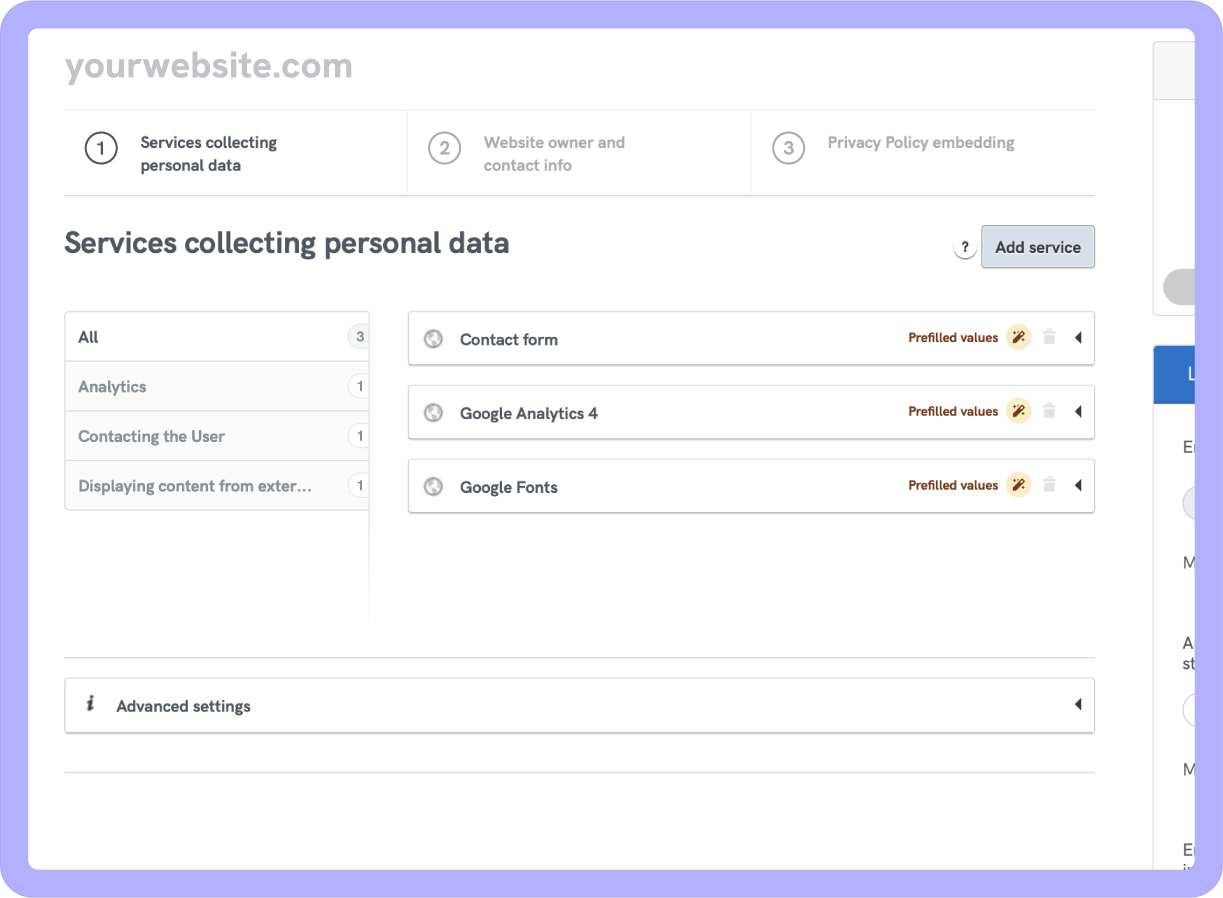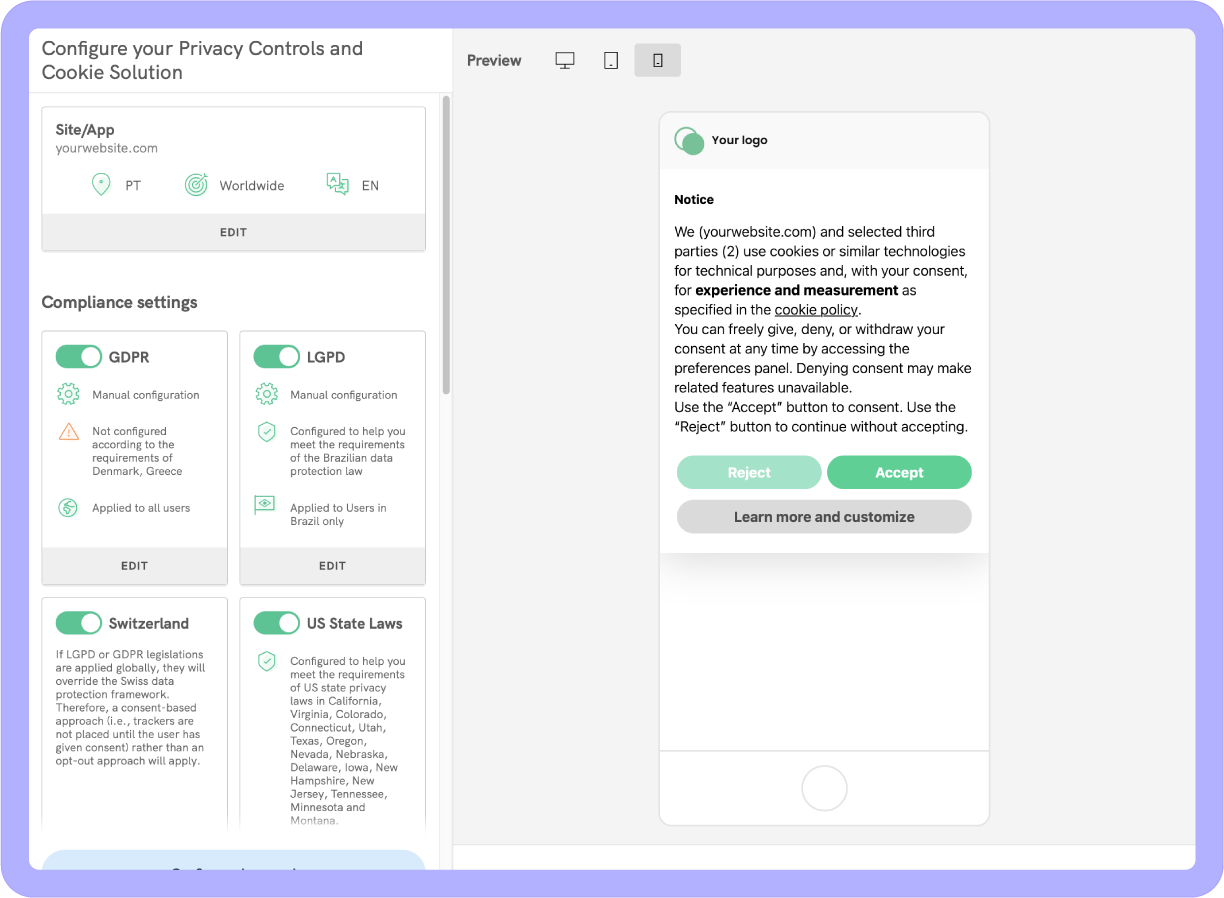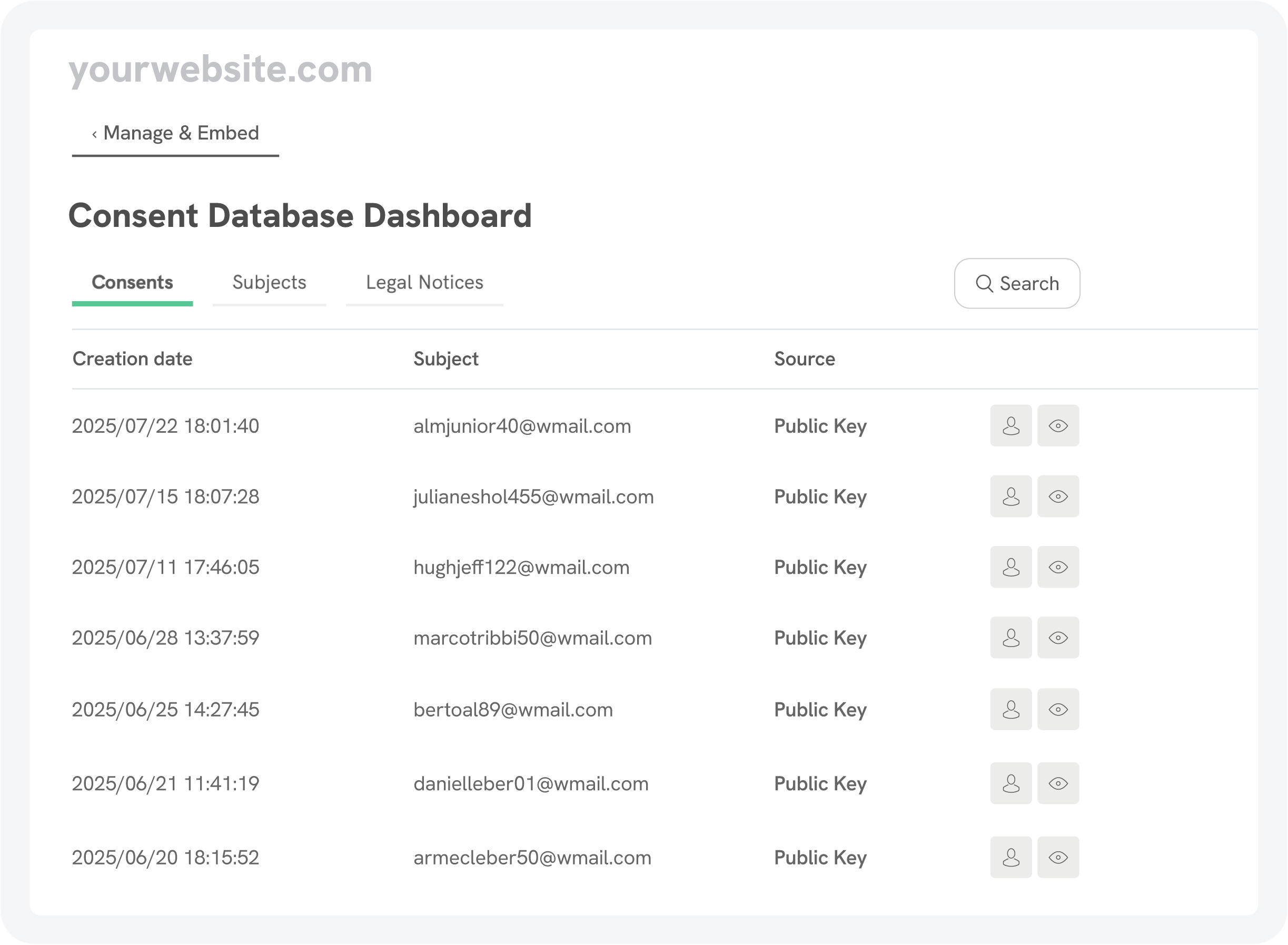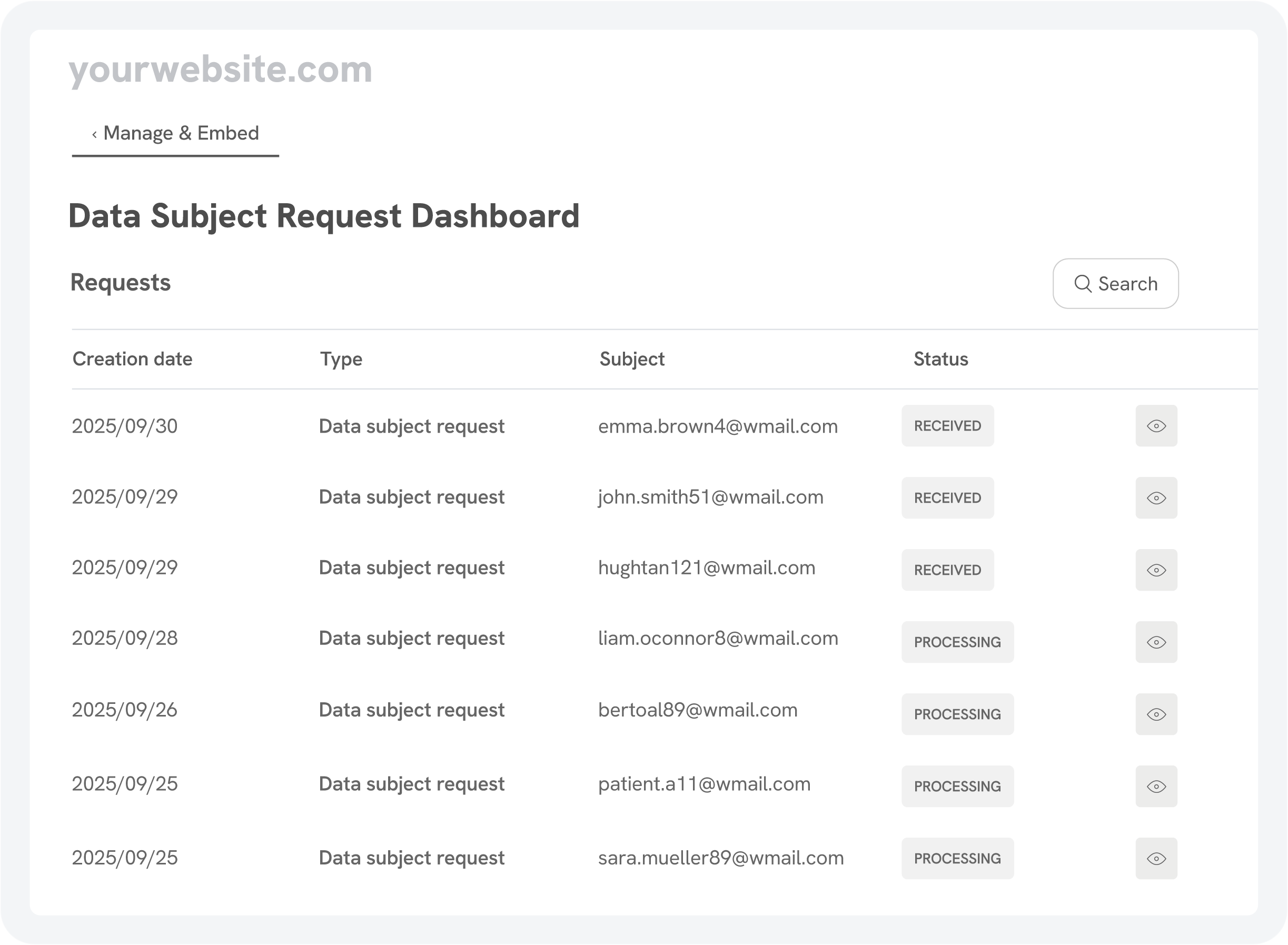Smarter compliance for UK GDPR
The UK’s data rules have split from the EU. Cookie exemptions, whitelisted marketing, and complaint rules mean you’ll need to adapt. We keep your policies, consents, and records in line, so you don’t have to chase every change.
Compliance in the post-Brexit UK
Brexit split UK GDPR from the EU’s rulebook. The Data (Use and Access) Act 2025 introduced analytics cookie exemptions, stricter complaint handling, and changes to how businesses can use and share data. iubenda keeps pace with these updates, so you can stay aligned with the latest regulations without having to start from scratch.
You’re in good company
150,000+ businesses rely on iubenda to adapt to changing UK and global data laws.
What UK GDPR means for you
The framework started out similar to the EU’s GDPR, but the 2025 Act added new obligations. If you process personal data and any of these apply, UK GDPR rules apply to you.

You’re based in the UK
Every organisation must comply, regardless of size.

You target UK users
Offering services (free or paid) triggers the rules.
What happens when you skip compliance?
UK GDPR enforcement is active, and the fallout goes beyond fines. Missed complaints, cookie issues, or cross-border mismatches can all cost you time, trust, and money.
Fines
Up to £17.5M or 4% of global turnover.
Cookie rules
Analytics may be exempt, but users must have clear opt-out options.
Complaint handling
Miss the 30-day acknowledgement window and you’re on the regulator’s radar.
Cross-border divergence
The EU and UK frameworks no longer align, so if you operate in both, you need coverage for each.
Key requirements under the UK Act
The 2025 Act refined core GDPR duties. Here’s what businesses now need to cover:
Cookie consent
Analytics and optimisation cookies are exempt, but you must inform users clearly and offer a free opt-out.
Legitimate interests
Certain activities (marketing, network security, intra-group transfers) are now whitelisted.
Complaint handling
Electronic complaint forms and 30-day acknowledgements are mandatory.
Automated decisions
Restrictions now focus only on special category data.
Data transfers & AI
A risk-based test for cross-border transfers, plus definitions for research and AI processing.
UK GDPR compliance essentials
Policies, consents, and cookies, handled automatically, updated when laws change, and ready to prove compliance anytime.
Privacy and Cookie Policy
Cookie & Consent Banner
Marketing Consent
Data Processing Activities
Data Subject Rights
Privacy and Cookie Policy Generator
Lawyer-drafted, auto-updating policies that adapt to UK GDPR and prove you’re playing by the rules.

Privacy Controls and Cookie Solution
Fast, fully customizable banners that collect and log valid consents.

Consent Database
Capture, manage, and prove consent for newsletters, lead forms, and campaigns.

Register of Data Processing Activities
Document what you process, why, and how, and create clear records that satisfy regulators.

Data Subject Rights Management Tool
Receive, track, and close user requests with built-in logs that show what was done and where.

Your questions, answered
Is the UK still aligned with EU GDPR?
Not exactly. The UK now has its own version under the Data (Use and Access) Act 2025. Some things are the same, but there are key differences, like cookie exemptions for analytics, whitelisted “legitimate interests” (including direct marketing), and stricter rules around complaint handling. If you’re working across the UK and EU, you’ll need to keep an eye on both.
Do I still need a DPO?
Yes, the rules haven’t changed here. You’ll need a Data Protection Officer if you’re a public authority, monitor people on a large scale, or process large amounts of sensitive data (like health or criminal records).
What’s changed with cookies?
Under the Act, you don’t always need consent for analytics and optimisation cookies. But (and this is important) you still have to tell users what you’re doing and give them a free, easy way to opt out. For other cookies (like advertising), banners are still a must.
What’s this about smart data schemes?
The government is rolling out sector-specific data-sharing frameworks, starting with energy and finance. If you’re in those industries, you may need to invest in infrastructure to meet the requirements.
How does iubenda help with all this?
We keep your setup aligned with the latest UK rules, whether that means updating policies, handling cookie exemptions, or ensuring complaint procedures are covered. As the law shifts, we update your tools so you don’t have to start from scratch.
Get aligned with UK GDPR
Join 150,000+ businesses staying ahead with iubenda’s flexible compliance platform.







